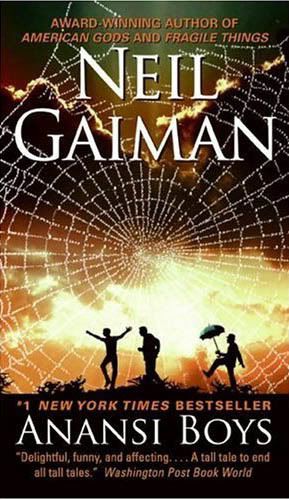two recent reads that i quite enjoyed
American Gods and
Anansi Boys both by Neil Gaiman

American Gods is a neat little fantasy that has the the old gods (norse, egyptian, african et al) threatening war against the new gods (basically technology)
the declining belief in the old gods threatens their existence and an all out confrontation is the seeming outcome, but things are not always what they seem, and lies and deception are often the currency of the gods

Anansi Boys is the story of one of the gods featured in previous book, after the death of Anansi, his son must come to grips with the fact that his father was a god, and that he has a half brother he's never met
part fantasy, part thriller, part family drama, fun stuff